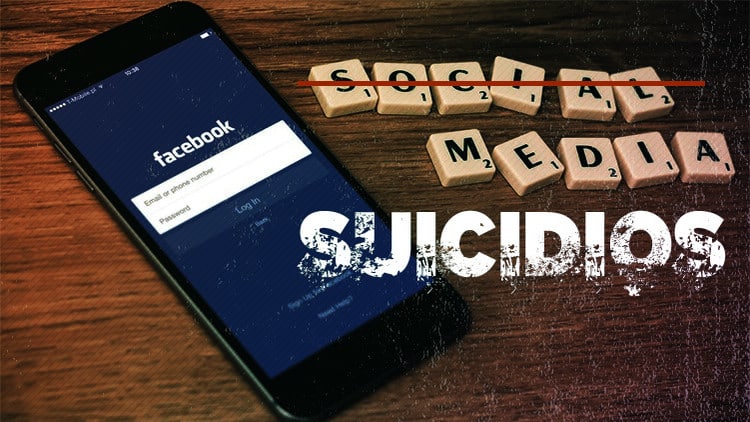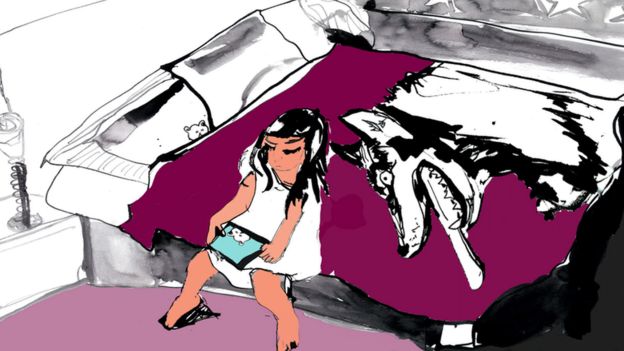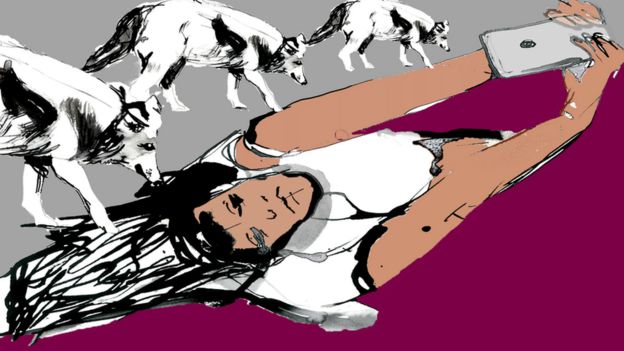Are social networks causing childhood depression?
social networks
Redes sociales afecta a jovenes y niños.
vínculo entre la mala salud mental en los jóvenes.

Un niño de 16 años fue referido a él después de que se lastimó a sí mismo y terminó en A & E.
"Lo primero que pensé fue en ponerlo en antidepresivos, pero conversé con él y me pareció que su uso de las redes sociales estaba teniendo un impacto negativo en su salud".
Entonces, el Dr. Chatterjee sugirió una solución simple: el adolescente debería intentar desconectarse de las redes sociales, limitándose a solo una hora antes de irse a la cama.
En el transcurso de unas semanas, debe extender esto a dos horas por la noche y dos por la mañana.
"Informó una mejora significativa en su bienestar y, después de seis meses, recibí una carta de su madre diciendo que era más feliz en la escuela e integrado a la comunidad local".
Eso y casos similares lo han llevado a cuestionar el papel que desempeñan las redes sociales en las vidas de los jóvenes.
"Las redes sociales están teniendo un impacto negativo en la salud mental", dijo. "Creo que es un gran problema y que necesitamos algunas reglas. ¿Cómo educamos a la sociedad a usar la tecnología para que nos ayude en lugar de perjudicarnos?"
Él no está solo. Un grupo de child welfare experts from Estados Unidos escribió recientemente al fundador de Facebook, Mark Zuckerberg, instándolo a cerrar Messenger Kids, una aplicación de mensajería desarrollada para niños, diciendo que era irresponsable alentar a los preadolescentes a usar la plataforma.
Citó evidencia de adolescentes que informaron cambios severos de humor debido al uso de las redes sociales y niñas de apenas 10 años que enfrentan problemas de imagen corporal debido a las imágenes que son bombardeadas en plataformas como Facebook, propiedad de Instagram.
A 2017 study by the Royal Society of Public Health. pidió a 1.500 jóvenes de entre 11 y 25 años que rastrearan sus estados de ánimo mientras utilizaban los cinco sitios de redes sociales más populares.
Sugirió que Snapchat e Instagram fueron los más propensos a inspirar sentimientos de inadecuación y ansiedad. YouTube tuvo la influencia más positiva.
Siete de cada 10 dijeron que Instagram les hizo sentir peor acerca de la imagen corporal y la mitad de las personas de 14-24 años informaron que Instagram y Facebook exacerbaron los sentimientos de ansiedad. Dos tercios dijeron que Facebook empeoró el acoso cibernético.
El estudio llevó a Shirley Cramer, directora ejecutiva de RSPH, a solicitar tres cambios específicos:
- una notificación emergente cuando una persona joven ha pasado una cierta cantidad de tiempo en línea
- a watermark on photos that have been digitally manipulated
- lecciones escolares sobre cómo usar las redes sociales de una manera saludable
Ella concluyó: "Las redes sociales se han convertido en un espacio en el que formamos y desarrollamos relaciones, damos forma a nuestra identidad, nos expresamos y aprendemos sobre el mundo que nos rodea, está intrínsecamente vinculado a la salud mental".
- Inversores de Apple piden acción sobre adicción a teléfonos inteligentes
- Facebook 'sin lugar' para niños pequeños
- El miedo a perderse impulsa la adicción a las redes sociales
La psiquiatra consultora Louise Theodosiou dice que uno de los indicios más claros que los niños pasan demasiado tiempo en sus teléfonos es su comportamiento durante una sesión con un psiquiatra.
"Hace dos o tres años, era muy raro que un niño contestara su teléfono o mensaje de texto durante una cita. Pero ahora es común", dijo el médico del Royal Manchester Children's Hospital.
Ella ha visto un aumento en los casos en que las redes sociales son un factor que contribuye a la depresión adolescente, la ansiedad y otros problemas de salud mental. Estos problemas a menudo son complejos y variados, desde el uso excesivo de juegos o sitios de redes sociales hasta sentimientos de inadecuación provocados por un bombardeo constante de imágenes de las vidas de otras personas en las redes sociales, hasta el acoso cibernético.

"En la última quincena he tenido dos niños que solicitan citas adicionales debido a la intimidación en línea", dijo el Dr. Theodosiou a la BBC.
"Algunos niños pierden o rompen sus teléfonos deliberadamente solo para terminar con los mensajes angustiosos".
Los adolescentes que se atreven a expresar puntos de vista alternativos, particularmente sobre "la sexualidad diversa", se exponen al riesgo de un torrente de abusos en plataformas como Twitter, dice ella. Y la intimidación en línea puede tener un efecto más intenso que las provocaciones en el patio de recreo.
"En la escuela, cualquier intimidación fuera de línea se limitaría a ese entorno, pero en la computadora en el hogar comienza a sentirse como si estuvieses siendo acosado en tu propia habitación", dijo el Dr. Theodosiou.
Uno de los grupos que más le preocupa, uno que describe como "afortunadamente, raro", son los niños que simplemente han dejado de ir a causa de su adicción en línea a las redes sociales, las plataformas de juego o ambas cosas.
Con frecuencia, estos niños se niegan a viajar a citas con un psiquiatra, por lo que una gama de profesionales tiene que hacer visitas a domicilio para tratar el problema. Puede llevar meses persuadirlos de que abandonen sus habitaciones.
"Estos niños viven en un mundo ficticio, a veces en detrimento de su salud física. Pueden tener mala salud física, como dolor de muelas, pero todavía no quieren abandonar sus mundos virtuales", dijo.

El Dr. Theodosiou ha visto de primera mano lo difícil que puede ser para los padres. Ella ha escuchado que algunos duermen con el enrutador de la casa para asegurarse de que los niños no puedan conectarse a la red wi-fi en el medio de la noche.
Incluso para aquellos niños cuyo uso de las redes sociales puede considerarse normal, todavía existen peligros en la forma en que internet se ha convertido en un conducto en la vida de amigos y celebridades.
"Los jóvenes tienen la necesidad de mirar compulsivamente a los demás y se molestan porque sienten que sus vidas no son así", dijo el Dr. Theodosiou.
"Mi sensación es que piensan que sus amigos tienen vidas mejores que ellos, a pesar de que solo están viendo una versión idealizada de las vidas de los demás".

Write us a comment: